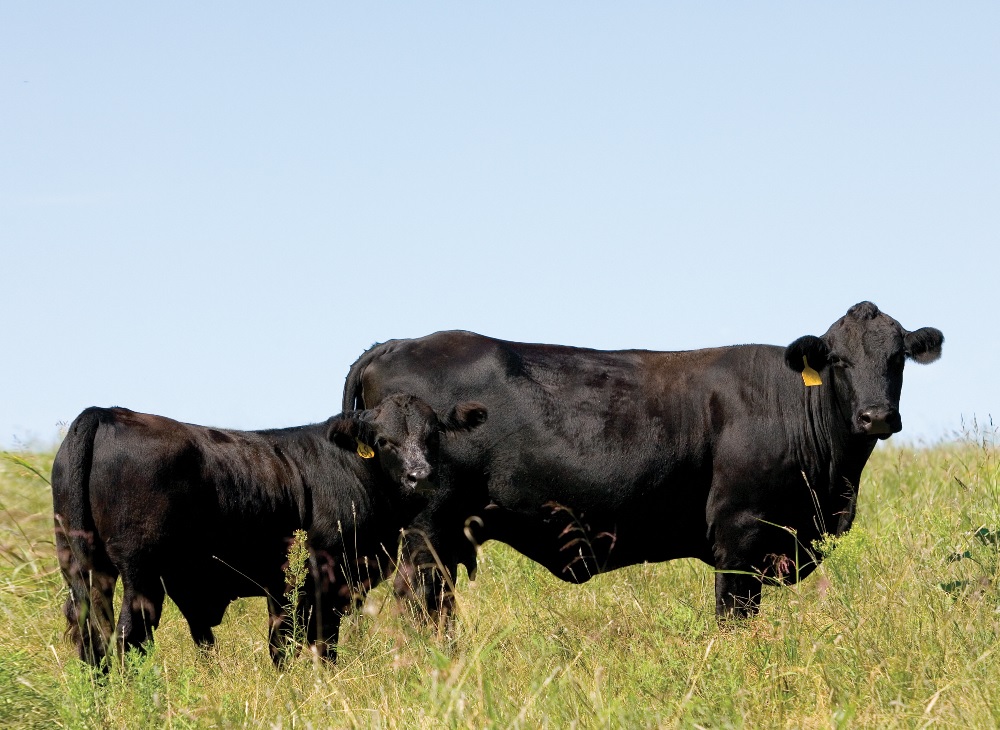
Agricultural News
Dr. Glenn Selk on how Lengthy, Difficult Births Adversely Affect Newborn Calves
Tue, 28 Jan 2020 12:42:10 CST
 Dr. Glenn Selk, Oklahoma State University Emeritus Extension Animal Scientist, offers herd health advice as part of the weekly series known as the "Cow Calf Corner" published electronically by Dr. Peel and Dr. Glenn Selk. Today, Dr. Selk talks aabout how lengthy, difficult births adversely affect newborn calves.
Dr. Glenn Selk, Oklahoma State University Emeritus Extension Animal Scientist, offers herd health advice as part of the weekly series known as the "Cow Calf Corner" published electronically by Dr. Peel and Dr. Glenn Selk. Today, Dr. Selk talks aabout how lengthy, difficult births adversely affect newborn calves.
Calves born after a prolonged, difficult birth are at a high risk of failing to receive adequate colostrum by natural suckling because of greatly decreased colostrum intake. Calves failing to receive adequate colostrum in a timely manner are more prone to diseases such as scours, and respiratory diseases later in life. Calves that are born to a prolonged stage 2 of parturition very often suffer from severe respiratory acidosis. Stage 2 is defined as the period of labor from first appearance of the water bag until the calf is completely expelled and on the ground.
The acidosis occurs as the umbilical cord is pinched off at the pelvic rim during delivery. Therefore the flow of oxygen from mother to calf and the return of carbon dioxide from calf to mother is impaired. The buildup of carbon dioxide and its byproduct lactic acid, in the blood of the newborn causes the blood pH of the calf to be lowered and therefore the calf suffers from acidosis. Severe acidosis and low blood oxygen may cause damage to major organs of the calf including the brain. Some ranchers may have observed calves that seem to be abnormal in behavior and are often called "dummy" calves.
Calves that have endured a lengthy stage 2 of delivery and are suffering from severe acidosis often are very sluggish and are VERY slow to stand up, find the mother's teat, and nurse. This delay in ingestion of the colostrum leads to poorer immunoglobulin absorption because of normal intestinal closure. Immunoglobulin is a big word for the large proteins that are "disease-protecting antibodies". In addition "acidotic" calves are less efficient at absorbing colostral immunoglobulins even if artificially fed colostrum. Therefore efforts should be made to provide weak newborn calves with the best source of colostrum available via bottle suckling or tube feeding.
The amount of immunoglobulin ingested is also a major determinant of final serum immunoglobulin concentration. A practical "rule-of-thumb" is to feed 5 to 6% of the calf's body weight within the first 6 hours and repeat the feeding when the calf is about 12 hours old. For an 80 pound calf, this will equate to at least 2 quarts of colostrum per feeding. Feed the natural or commercial colostrum first, before the calf is fed whole milk that is not colostrum. Once the calf has consumed any milk product, the intestine speeds up the process of intestinal closure, which would inhibit the absorption of antibodies from colostrum fed later.
If you have noticed a higher incidence of calf diarrhea among calves born to first calf heifers, this may be due to two reasons: 1) The calf has more severe respiratory acidosis due to prolonged stage 2 of calving, and 2) two-year-olds give smaller quantities of first milk (colostrum) than do mature cows. Properly developed replacement heifers bred to calving ease bulls should help minimize the difficult births and allow the young cow to produce her genetic maximum first milk.
WebReadyTM Powered by WireReady® NSI
Top Agricultural News
More Headlines...



















